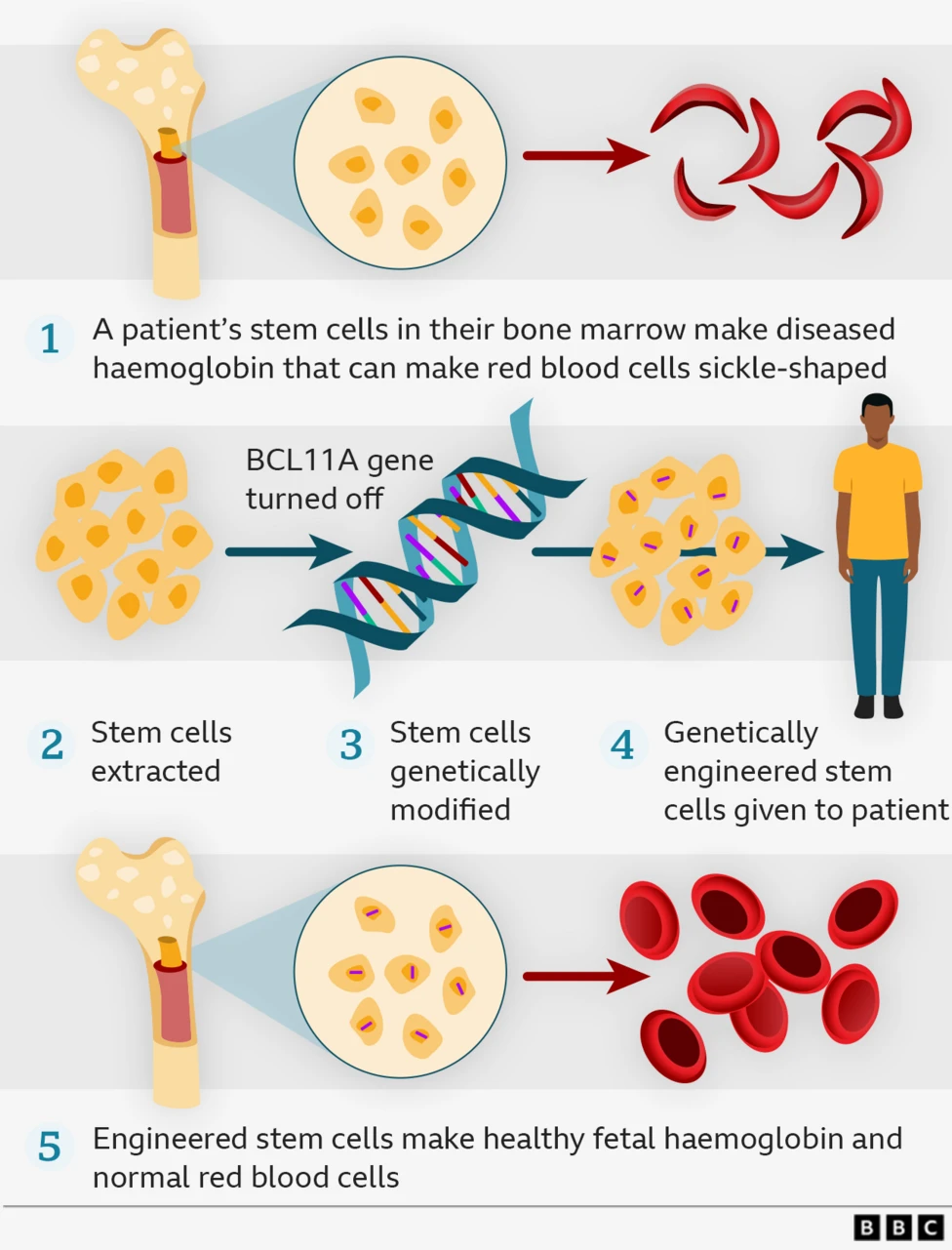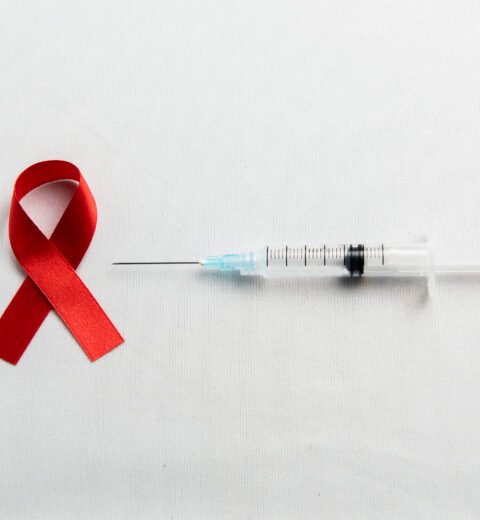A revolutionary gene-editing therapy for sickle cell disease, valued at £1.65m, is set to be offered on the NHS in England, bringing new hope to many Nigerians and Black communities across the UK.
A Major Breakthrough for Sickle Cell Patients
Approximately 50 people annually, who suffer from the inherited blood disorder, are expected to receive the new treatment, known as Casgevy (Exa-cel).
Prof. Bola Owolabi, of NHS England, described this as a “monumental step forward,” calling it a treatment that “holds a very real prospect of a cure.” The NHS has reached a confidential pricing agreement with the manufacturer, Vertex, ensuring the therapy is accessible for eligible patients.
Campaigners are hailing the treatment as “groundbreaking,” with many seeing this as a major milestone for sickle cell patients. The disorder, which predominantly affects people of Black African and Caribbean heritage, can be life-threatening and causes excruciating pain due to blocked blood vessels.
What Causes Sickle Cell Disease?
Sickle cell disease results from a genetic mutation that affects haemoglobin—the protein responsible for carrying oxygen in red blood cells. Instead of smooth, round red blood cells, affected individuals produce sickle-shaped, stiff cells that clump together, restricting blood flow and reducing oxygen supply to organs. This puts patients at high risk of complications such as stroke, heart failure, and organ damage.
In England, an estimated 15,000 people live with sickle cell disease, with many within the Nigerian and Black African communities struggling with frequent hospital admissions due to painful crises.
The Promise of Gene Therapy
Clinical trials have shown that Casgevy significantly reduces hospital admissions. All patients who received the therapy remained free of hospital stays for at least one year, with most avoiding crises for over three years.
NHS chief executive Amanda Pritchard said the treatment “could be absolutely transformative—it could enable patients to live free from the fear of sickle cell crises hanging over them.”
A Personal Story of Hope
London-based nurse Asiawu Imam, 26, who also lives with sickle cell, has spent much of her life in and out of hospitals, experiencing painful crises multiple times a year. She describes the pain as “like being stabbed from the inside out,” lasting anywhere from half an hour to four days.
For her and many others, the NHS’s decision to offer Casgevy brings a renewed sense of hope. “This is going to be a life-changing moment for many in my community,” she said.
How Does the Gene Therapy Work?

The treatment involves an advanced gene-editing tool called CRISPR, which targets a specific gene to allow the body to produce healthy red blood cells. The process includes:
- Extracting stem cells from the patient’s bone marrow.
- Using CRISPR technology to modify a specific gene.
- Returning the modified cells to the patient.
- Enabling the production of healthy fetal haemoglobin, which is resistant to sickling.
Before receiving the modified stem cells, patients must undergo chemotherapy to prepare their bodies for the treatment. The full process requires careful consideration, as it involves lengthy hospital stays and potential side effects, such as headaches and bleeding issues.
Where Will Treatment Be Available?
Specialist centres in London, Manchester, and Birmingham will offer the treatment to patients aged 12 and above who suffer from recurrent sickle cell crises and have no suitable stem cell donor.
John James, CEO of the Sickle Cell Society, praised the development, calling it “incredible” and “a huge step forward for the sickle cell community.” However, he also highlighted that not all patients will be eligible for the treatment and stressed the need for continued efforts to improve sickle cell care in the UK.
What Does This Mean for Nigerians in the UK?
For the Nigerian community in the UK, where sickle cell disease is prevalent, this breakthrough offers a significant step toward better healthcare and quality of life. With limited treatment options previously available, the introduction of gene therapy marks a new era of hope, bringing potentially life-changing benefits to those affected.
The Future of Sickle Cell Treatment
While gene therapy is a breakthrough, access remains a key concern. Advocates are pushing for broader availability and support for all sickle cell patients, ensuring that everyone who needs life-changing treatment receives it.
As more advancements emerge, the NHS’s move signals a commitment to addressing sickle cell disease, offering hope to Nigerians and Black communities across the UK who have long faced challenges in receiving adequate treatment.
Join Our WhatsApp Channel
Stay updated on the latest UK news, including education, health, job openings, and more for those living in the UK!
Join here: Naija UK Channel
Also, follow us on our social media channels for the latest updates and discussions:
- Twitter: @NaijaUKConnect
- Facebook: Naija UK Connect
- Instagram: @naijaukconnect
For more updates on healthcare and opportunities for Nigerians in the UK, stay connected with Naija UK Connect.




